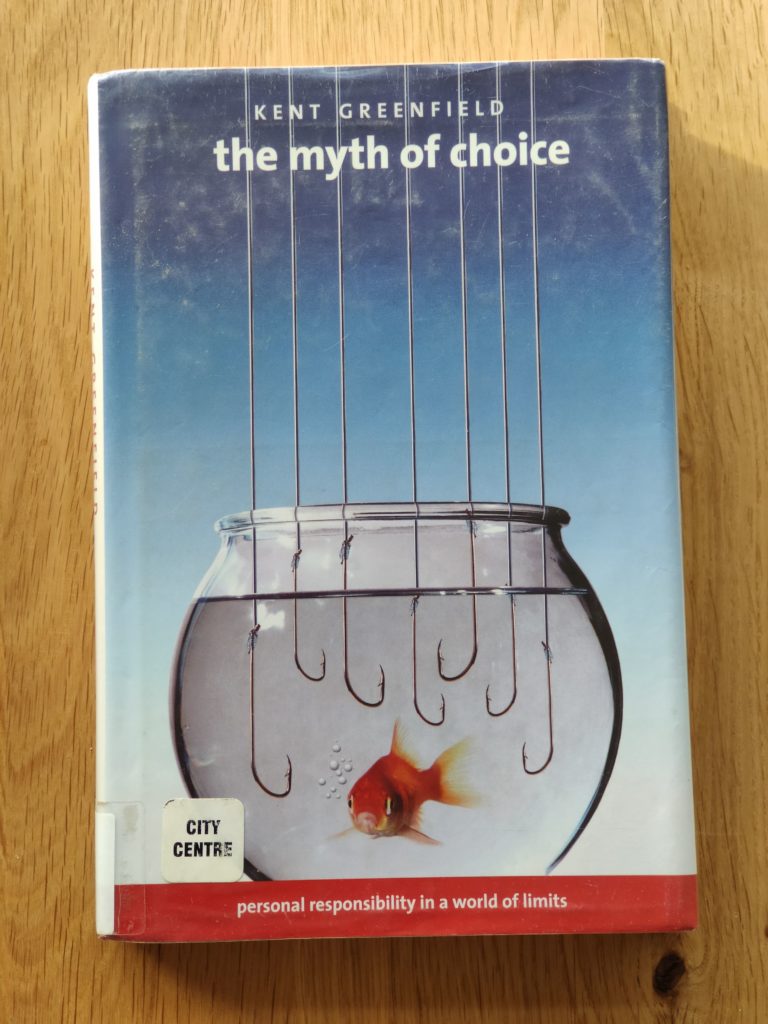
When you need to make a decision, having more choices isn’t necessarily better: what really matters is ending up with a good result. Greenfield cites an old Burger King advert: “Choices don’t mean a thing when there’s nothing good to choose.”
This book discusses choices as they apply in all areas of life. The ultimate expression of choice might be the free market: libertarians might say that free markets are best. But even free markets are not fully free, nor should they be. There would be too many problems in allowing free trade in human body parts, for example. And trying to get free-market solutions to things like policing and medical care is always going to end badly for a significant number of people, and therefore bad for society as a whole.
I was amazed by Greenfield’s idea that it would be beneficial to improve the USA’s electoral system by ending the process of gerrymandering electoral boundaries. I mean, it’s clearly a good idea. But what really amazed me is the fact the gerrymandering is a normal and accepted part of the system. The more I learn about American politics, the more amazed I am that the system functions at all. Although it does seem to be breaking down a bit recently.
I mentioned libertarianism before, with its credo of personal accountability, according to which everyone should be responsible for themselves. It sounds plausible, but Greenfield points out that the rhetoric of personal responsibility is often a cover for the avoidance of shared responsibility. Especially in modern society, it is true that “it takes a village to raise a child”. Even more, we are all part of our society, but society also is part of us. So personal responsibility is shared responsibility. The choices we make affect others as well as ourselves — and vice versa.
Anyway, The Myth of Choice is a great follow-up and companion to Barry Schwartz’s The Paradox of Choice and Michael Sandel’s What Money Can’t Buy. You should choose to buy this book.